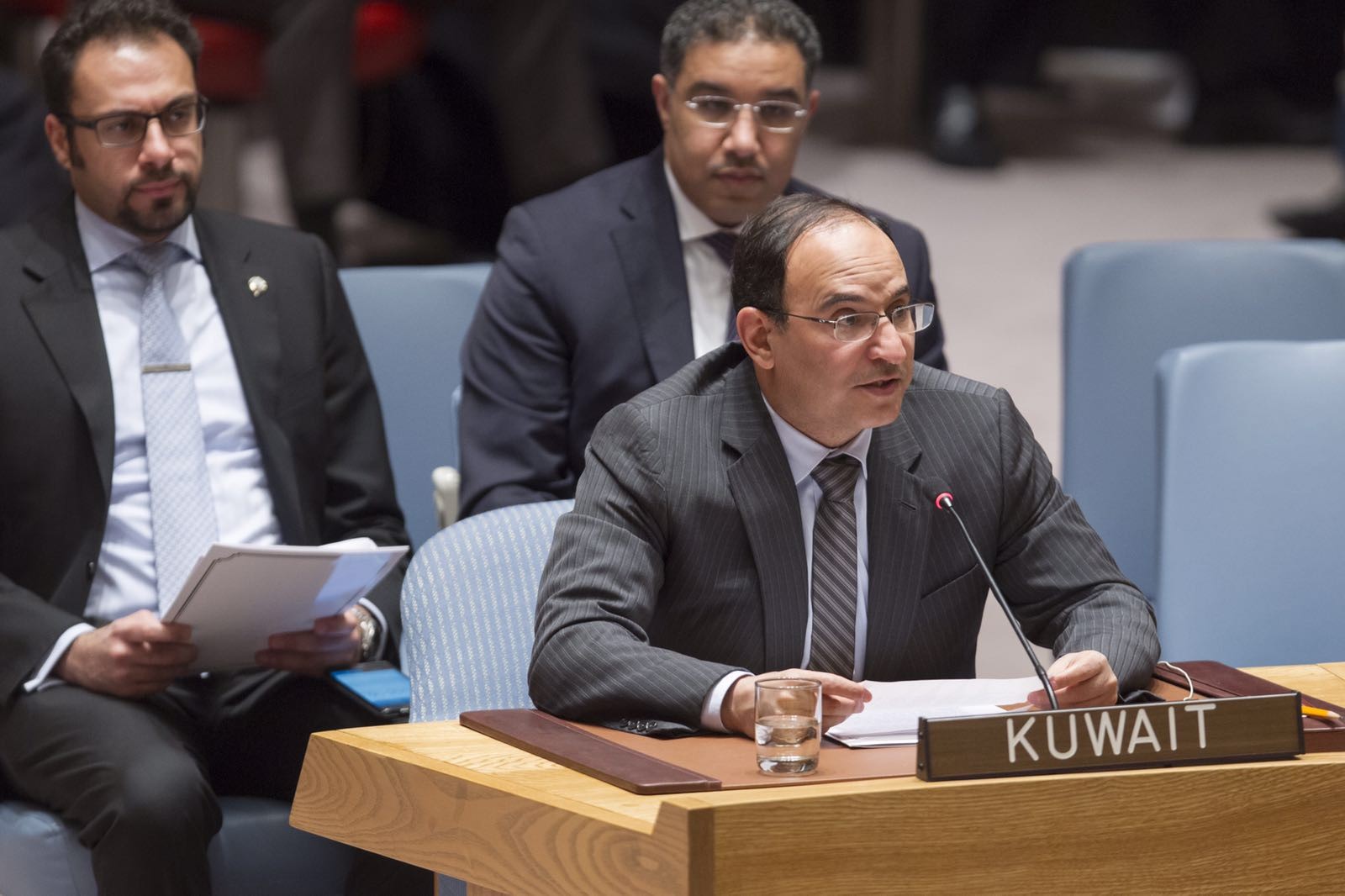LOC23:59
20:59 GMT
 Kuwait's Delegate to the UN Ambassador Mansour Al-Otaibi
Kuwait's Delegate to the UN Ambassador Mansour Al-Otaibi
NEW YORK, March 28 (KUNA) -- Kuwait on Tuesday reiterated its firm supportive stance to disarmament and international security issues as per its foreign policy, which aims at consolidating international peace, security and stability.
Kuwait has fulfilled its obligations as per international disarmament treaties, which it had signed, Kuwait's Delegate to the UN Ambassador Mansour Al-Otaibi said in a speech at the UN Conference on "Negotiating Legally Binding Instrument Leading towards Total Elimination of Nuclear Weapons".
Al-Otaibi stressed that the implementation of programs for peaceful use of nuclear power should be carried out in a responsible way and with full commitment to the comprehensive safeguards for safety outlined by the International Atomic Energy Agency (IAEA).
Kuwait pays due attention to the disarmament and nuclear non-proliferation issues due to the grave and disastrous threats of such massive destruction weapons on humanity, he said.
He urged the international community to employ all human and financial resources to rid the world of these weapons.
"Establishing peace and security in the world necessitates ridding the world of these destructive weapons," he laid it bare.
Al-Otaibi also reiterated Kuwait's support to all international efforts to curb the negative impact of the nuclear weapons.
However, he questioned the practicality of the goal to create a world free from nuclear weapons.
"These negotiations are held at a delicate and sensitive time. Nevertheless, discussions are not confined to finding the best means to get rid of nuclear weapons, but rather to considering the practicality of the goal itself," he said.
"States which possess nuclear weapons are still re-confirming that their weapons are for deterrence and security meanwhile other world countries are looking forwards towards creating a world free from nuclear weapons through implementing their obligations as the resolutions of the previous review conferences."
Al-Otaibi urged countries that have nuclear weapons to redouble their efforts to reduce their nuclear arsenals as per their international obligations.
He regretted that these countries are not doing their job in this regard.
He noted that Kuwait has signed and ratified a slew of international treaties and conventions related to disarmament.
Kuwait signed the nuclear nonproliferation (NPT); the Comprehensive Nuclear-Test-Ban Treaty (CTBT) that bans all nuclear explosions, for both civilian and military purposes, in all environments; the Chemical Weapons Convention (CWC) which outlaws the production, stockpiling, and use of chemical weapons and their precursors, and Biological Weapons Convention (BWC) on the prohibition of the development, production and stockpiling of bacteriological (biological) and toxin weapons and on their destruction, he said.
He added that Kuwait also inked the Convention on Early Notification of a Nuclear Accident; the Comprehensive Safeguards Agreement; Additional Protocol; and Convention on Prohibitions or Restrictions on the Use of Certain Conventional Weapons Which May be Deemed to be Excessively Injurious or to Have Indiscriminate Effects.
Al-Otaibi recalled the resolution of the review conference in 1995 which called for creating a Middle East free of nuclear weapons and the 2010 review conference which called for holding an international conference in 2012 to achieve this goal.
Despite all honest and relentless efforts exerted by Arab countries and the flexibility they have shown in the past years, the conference has not been held due to unilateral decisions to postpone it sine die, he regretted.
The United States, Britain and France are among almost 40 countries which decided not join the UN conference that started Monday and will conclude on Friday.
The United Nations General Assembly adopted a resolution in December - 113 in favor to 35 against, with 13 abstentions - that decided to "negotiate a legally binding instrument to prohibit nuclear weapons, leading towards their total elimination" and encouraged all member states to participate.
As per the UN, it is estimated that more than 15,000 nuclear warheads remain in global stockpiles. (end)
mao.ibi